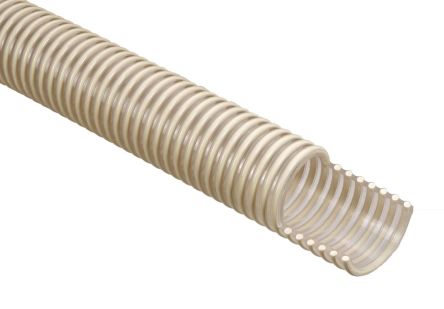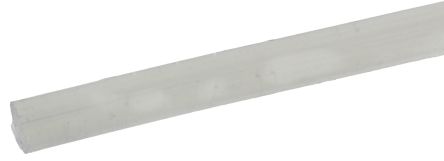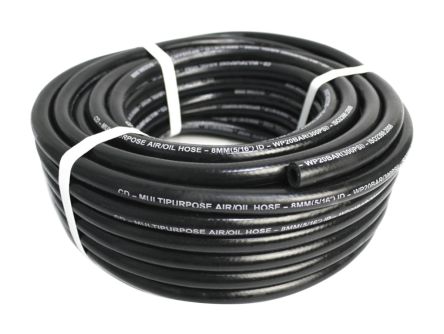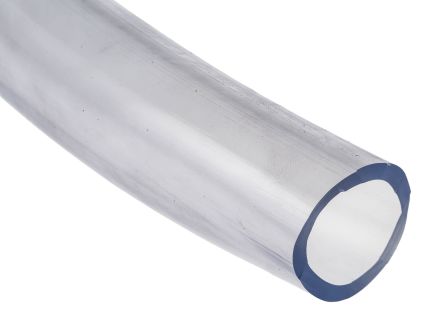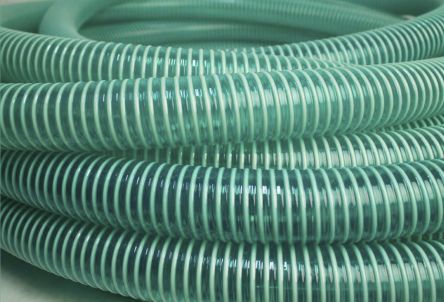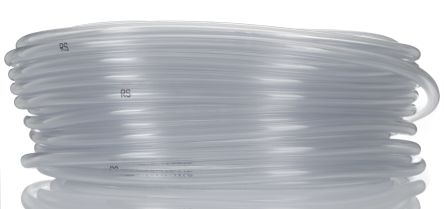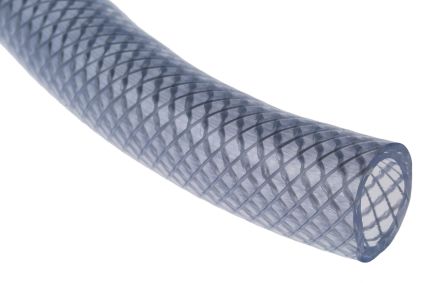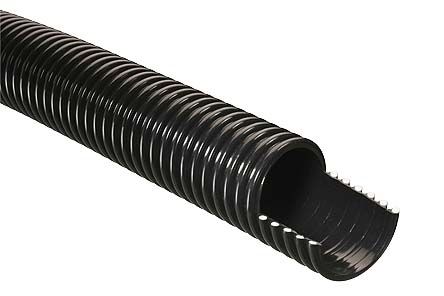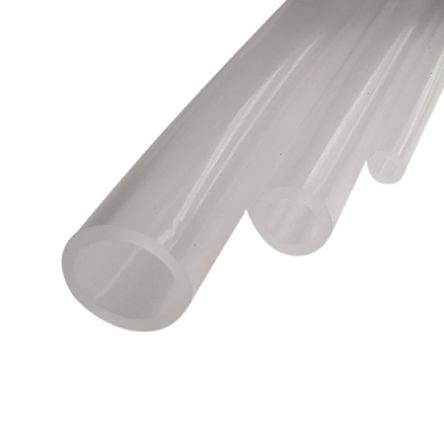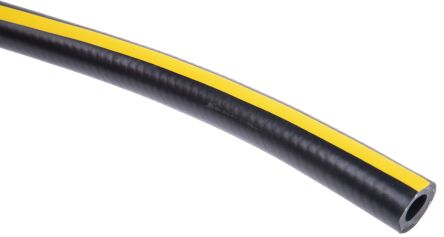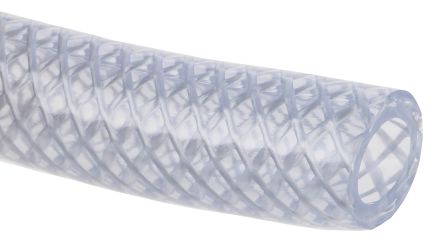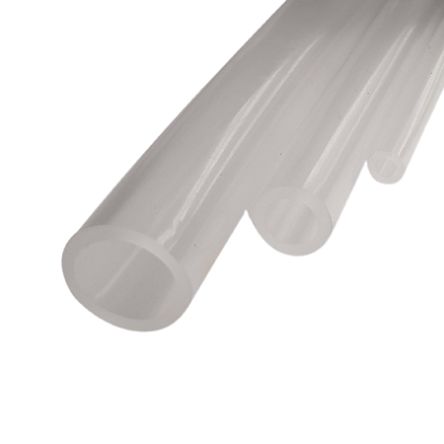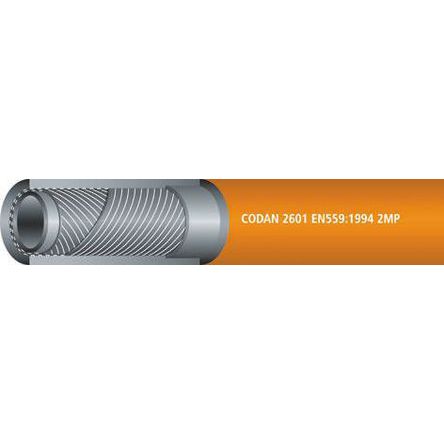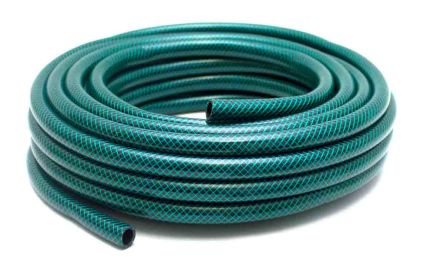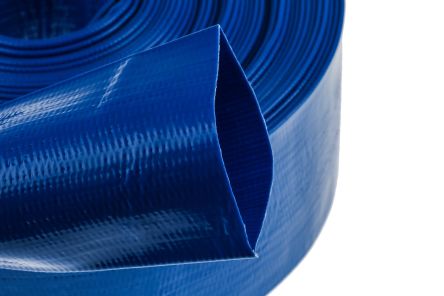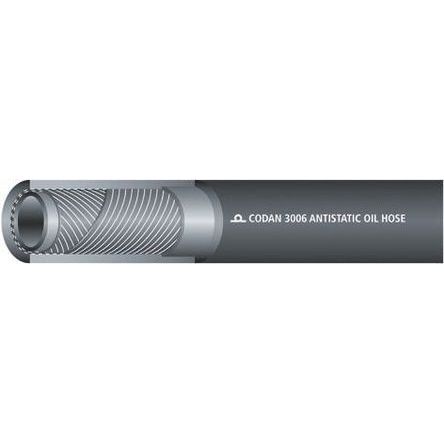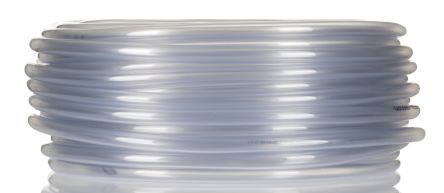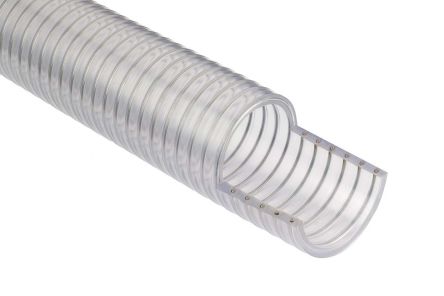- Automation & Control Gear
- Cables & Wires
- Enclosures & Server Racks
- Fuses & Circuit Breakers
- HVAC, Fans & Thermal Management
- Lighting
- Relays & Signal Conditioning
- Switches
- Batteries & Chargers
- Connectors
- Displays & Optoelectronics
- ESD Control, Cleanroom & PCB Prototyping
- Passive Components
- Power Supplies & Transformers
- Raspberry Pi, Arduino, ROCK, STEM Education & Development Tools
- Semiconductors
Hose Pipe & Flexible Tubes
Suitable for a wide range of applications, hose pipes and tubes can be found in the food, waste and automotive industries and in homes. The flexibility of a hose pipe allows the user to work freely in or around most circumstances or can fix a hose in place in or around a workstation or any other scenario without the need for angle or corner connectors.
Hoses can be found on retractable reels mounted to the wall or ceiling for easy access while working and ease of storage when not in use. They come in a range of sizes and colors, and understanding the application of your hose is key when purchasing to ensure you have one suitable for the type of liquid or gas you are working with.
What Are Hose Pipes and Flexible Tubes?
Hose pipes and flexible tubes act as connectors between machines or other equipment, enabling the transportation of fluids, gasses, and other materials from one site to another. They are designed for optimal mobility and flexibility in directing the flow where it's needed.
Common Materials Used in Hose Pipes and Flexible Tubes
Familiarizing the different materials for hose pipes and flexible tubes allows you to determine the right one for your needs and applications.
EPDM (Ethylene Propylene Diene Monomer) Rubber: These materials are known for its excellent resistance to heat and weather conditions. Hose pipes and flexible tubes made from EPDM also feature good electrical insulation, making them great for insulating and connecting cables and wires.
NBR (Nitrile Butadiene Rubber): Hose pipes and tubes made from NBR are resistant to oils, fuels, and chemicals. This makes them ideal for fuel lines, oil transfer hoses, and applications in the automotive and marine industries.
SBR (Styrene-Butadiene Rubber): This type of rubber has good abrasion resistance and aging stability, making it suitable for general-purpose applications where cost-effectiveness and durability are key considerations.
PVC (Polyvinyl Chloride): PVC hoses are lightweight and resistant to wear and tear, making them ideal for general-purpose applications. They are often used in garden hoses, air and water pipes, and for light chemical handling. PVC’s affordability and versatility make it a popular choice for non-critical applications.
Silicone: Silicone hoses are suitable for high-temperature applications and food-grade environments. They can withstand extreme temperatures, both hot and cold, making them perfect for use in industries such as food and beverage processing, pharmaceuticals, and the manufacturing of medical devices.
Polyurethane: Polyurethane hoses offer excellent flexibility and resistance to kinking and abrasion. They are often used in applications that require high flexibility and durability, such as pneumatic tools, vacuum systems, and industrial robots.
Types of Hoses
There are a variety of hose pipe types available in the Philippines, each having unique benefits and application uses. These are:
- Water hoses - Flexible water hoses are mainly used for irrigation, gardening, building, fire, and many more. The inner tube is mainly made from PVC and EPDM. These hoses come in a range of sizes from 1.5 meters to 50 meters and more.
- Hot water and steam hoses - These are used within refrigeration equipment to cool water, engine hot and cold water, food processing. The inner tube is mostly made of EPDM.
- Air hoses - This type of flexible tube is widely used in compressors, pneumatic lines and systems, spray guns, sprayers and other industrial fields.
- Oil transmission hoses - From its name, this type of hose is mainly used for the transmission of oil, petroleum, diesel on land or in the ocean. The inner tube is made of NBR, PVC and SBR with the outer surface having excellent wear resistance.
- House hoses - This is used to connect household appliances acting as an inlet hose. It features screw-on connections, and usually made from PVC.
Use of Hose Pipes & Tubes in Various Industries
These are some of the key industries where hose pipes and flexible tubes are mainly used:
Food Industry
Hose pipes and flexible tubes are essential for transporting liquids and semi-solids, including water, juice, milk, and other food products. These hoses must adhere to strict sanitary standards to prevent contamination.
Food-grade hoses are typically made from materials like silicone and certain types of rubber that are resistant to bacteria and easy to clean. They ensure that the products remain uncontaminated and safe for consumption throughout the transportation process.
Automotive Industry
In the automotive sector, hoses are integral to the functioning of vehicles. They are used in various systems, including cooling systems, fuel lines, brake systems, and air conditioning units.
Agriculture
Hose pipes are vital in agriculture for tasks such as irrigation, pesticide spraying, and fertilization. Flexible and durable hoses made from materials like PVC and rubber are preferred for their ability to withstand harsh environmental conditions, such as typhoons, and high water pressure. These hoses help in efficiently distributing water and chemicals across large fields, enhancing crop yield and maintaining healthy plant growth.
Household Applications
For homes in the Philippines, hose pipes and flexible tubes are ubiquitous, serving various purposes from garden watering to connecting household appliances. Garden hoses, often made from PVC or rubber, are used for watering plants, cleaning, and other outdoor tasks. Furthermore, hoses are used as inlet hoses for washing machines and dishwashers, ensuring a steady supply of water. Their flexibility and ease of use make them indispensable for everyday household chores.
Laboratories
Laboratories use rubber tubing for transferring chemicals, gasses, and other substances safely. These hoses must be resistant to a wide range of chemicals and able to maintain their integrity under different temperatures and pressures.
Additionally, lab-grade rubber tubing is designed to be non-reactive and durable, ensuring accurate and safe handling of substances during experiments and processes. This is crucial for maintaining the purity and stability of chemicals and other materials handled in scientific research and industrial applications.
How to Select the Right Hose
Selecting the right hose for your needs involves carefully evaluating several factors to ensure optimal performance and longevity. Here are the key considerations:
- Identify the Application: Understanding the application helps in choosing a hose that is compatible with the substance it will transport and the conditions it will face.
- Material Compatibility: Choosing a hose made from materials that can withstand the substance being transported is crucial. Different materials offer varying levels of resistance to chemicals, abrasions, and environmental conditions.
- Size and Length: The hose’s size and length are vital for ensuring it fits the required dimensions of your setup. The diameter of the hose must match the fittings to prevent leaks and ensure efficient flow.
- Working Pressure: It’s essential to verify that the hose can handle the operational pressure of your system. The working pressure should be higher than the maximum pressure the system will exert. This ensures safety and prevents hose failure, which could lead to costly downtimes and repairs.
- Temperature Range: The hose must be able to operate within the required temperature range. Hoses exposed to temperatures outside their operational limits can degrade quickly, leading to leaks and failures.
Hose Ratings and Specifications
When choosing a hose, it's important to understand the following ratings and specifications:
- Pressure Ratings: Maximum pressure the hose can withstand.
- Temperature Range: Operational temperature limits.
- Bend Radius: Minimum radius the hose can bend without damage.
- Vacuum Rating: Ability to handle negative pressure.
- Chemical Resistance: Resistance to various chemicals.
Maintenance Tips
Proper maintenance of hose pipes is essential for extending their lifespan and ensuring their reliable performance. Here are some detailed tips to help you maintain your hose pipes effectively:
1. Regular Inspections
Conducting regular inspections is crucial for early detection of wear, leaks, and damage. Schedule routine checks to examine the hose pipe’s exterior and fittings for any signs of wear and tear, cracks, bulges, or abrasions. Pay attention to the areas where the hose bends or connects to fittings, as these spots are more prone to damage. Early detection allows for timely repairs or replacements, preventing potential failures that could disrupt operations.
2. Proper Storage
Storing hoses correctly can significantly prolong their lifespan. Keep hoses in a cool, dry place away from direct sunlight and extreme temperatures. UV rays and excessive heat can weaken hose materials, causing them to degrade faster.
Moreover, avoid storing hoses in areas with sharp objects or chemicals that could cause damage. Use hose reels or racks to prevent kinks and tangles, and store them in a coiled or flat position, depending on the manufacturer’s recommendations.
3. Cleaning
Regular cleaning of hoses after use is essential to prevent blockages and contamination. Depending on the hose’s application, different cleaning methods may be required. For hoses used in food processing, thorough sanitization is crucial to prevent bacterial growth. If used in an industrial setting, flushing with water or appropriate cleaning agents can remove residues and prevent buildup. Moreover, always ensure that the cleaning agents used are compatible with the hose material to avoid damage.
4. Follow Manufacturer Guidelines
Manufacturers provide specific guidelines on pressure limits, temperature ranges, chemical compatibility, and maintenance practices tailored to their products. Therefore, make sure to keep a copy of the manufacturer’s manual and follow the recommended practices for inspection, cleaning, storage, and replacement intervals. Adhering to the manufacturer’s recommended usage and maintenance procedures can help in ensuring the longevity and performance of your hoses.
Buy Hose Pipes & Flexible Tubes from RS Philippines
We offer a wide range of hose pipes and flexible tubes suitable for various applications. Check out our competitive hose prices in the Philippines and purchase the right hose for your needs. Explore our selection today and find the perfect solution for your business.
Aside from hose pipes and flexible tubes, we also offer other components, such as spill absorbents, motor protectors, and industrial plugs. Get all the components and equipment you need from us today.
